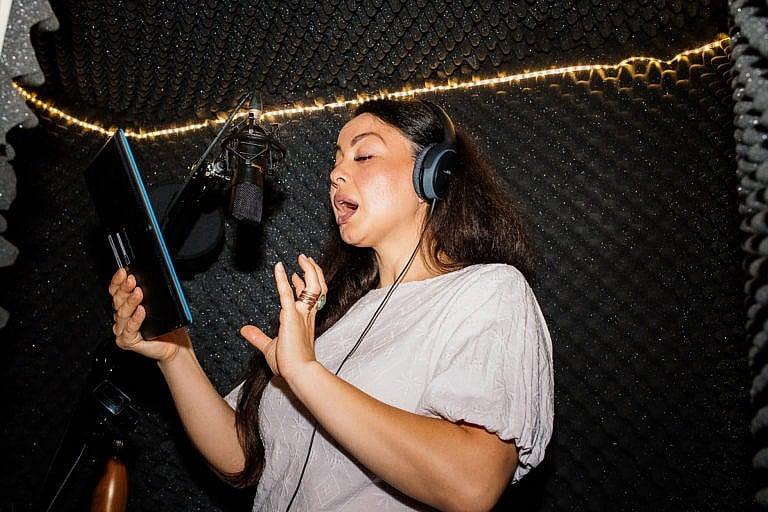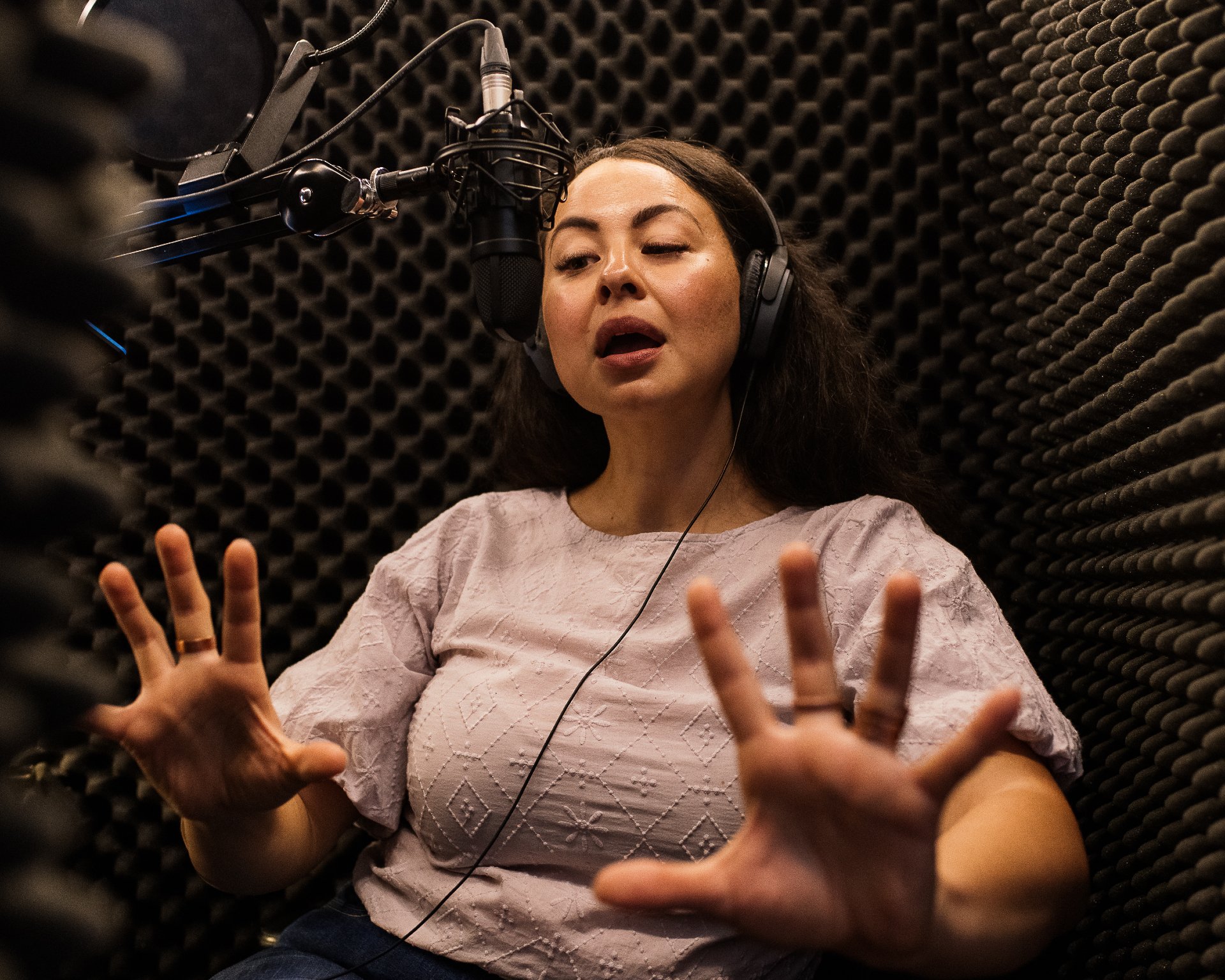The Gig: I get paid $250 an hour to narrate audiobooks
“I avoid shouting now that my voice is a real money-maker”

Tiffany Ayalik is an audiobook narrator from Vancouver. (Photography by Alana Paterson)
Share
Tiffany Ayalik is a voiceover artist and audiobook narrator located in Vancouver.
Early life: As a child, I loved putting on plays and concerts with my sister, Inuksuk. We created our own pretend worlds.
Education: I studied theatre at Red Deer Polytechnic in Alberta for two years before heading to the University of Alberta to get my bachelor’s degree in fine arts. Theatre school is where I learned to use my voice as a tool. Breath work, character work, accents—all those lessons taught me about the physiological process that allows us to make sound. I’m also a throat singer in a band called Piqsiq, so I’ve spent tons of time in studios with mics and engineers.
How I started: After school, I got an agent and began acting in film and TV. I received offers for voiceover work, specifically for Indigenous characters and animated projects. (I voiced Grandma Elizabeth on CBC’s Molly of Denali and Pitseolak Ashoona on Mary and Flo on the Go.) During the pandemic, I started to get audiobook jobs. It was one of the only safe options for media work at the time. You’re in a booth by yourself.
Why I love my job: I get to sit in a comfortable chair in a dark, quiet room and play make-believe for hours. It’s a huge honour to bring a story to life, especially for people who don’t read or who need an auditory aid.
Prep work: I do a preliminary read of the book to get a sense of who the characters are, then I make notes. What is going on in their body? How would they sit in this chair? The challenge is making the characters sound like real people, not caricatures.

Necessary equipment: In a professional studio, all the tools are already there. In my early narration days, my home studio was literally in my closet. I used clothes and blankets to muffle echoes, and recorded with a USB mic plugged into my laptop.
Warm-up routine: Speaking for hours is hard muscle work, so I use my theatre training to get my body ready. It’s more than tongue twisters. I reflect on how the voice responds to stress, fear and joy. I know I need a break when I stumble on my words or read the same passage over and over.
Salary range: I’m paid about $250 per hour. Recording can take 20 hours or more, depending on the book’s length.
Favourite projects: Forever Birchwood by Danielle Daniel—a YA book about four preteen girls—and Pamela Korgemagi’s The Hunter and the Old Woman. In the latter, the author is speaking largely from a cougar’s point of view.
Workplace hazard: Sometimes, I get a little emotional while reading passages with big feelings or conflict or death. I have to stop and tell the engineer, “I’m just going to have a little cry.” Sometimes they cry too!
Vocal aids: The usual things: tea and honey. I don’t smoke or drink. I also avoid shouting, especially now that this has become a real money-maker.
—As told to Nadine Araksi
This article appears in print in the November 2022 issue of Maclean’s magazine. Buy the issue for $8.99 or better yet, subscribe to the monthly print magazine for just $29.99.
